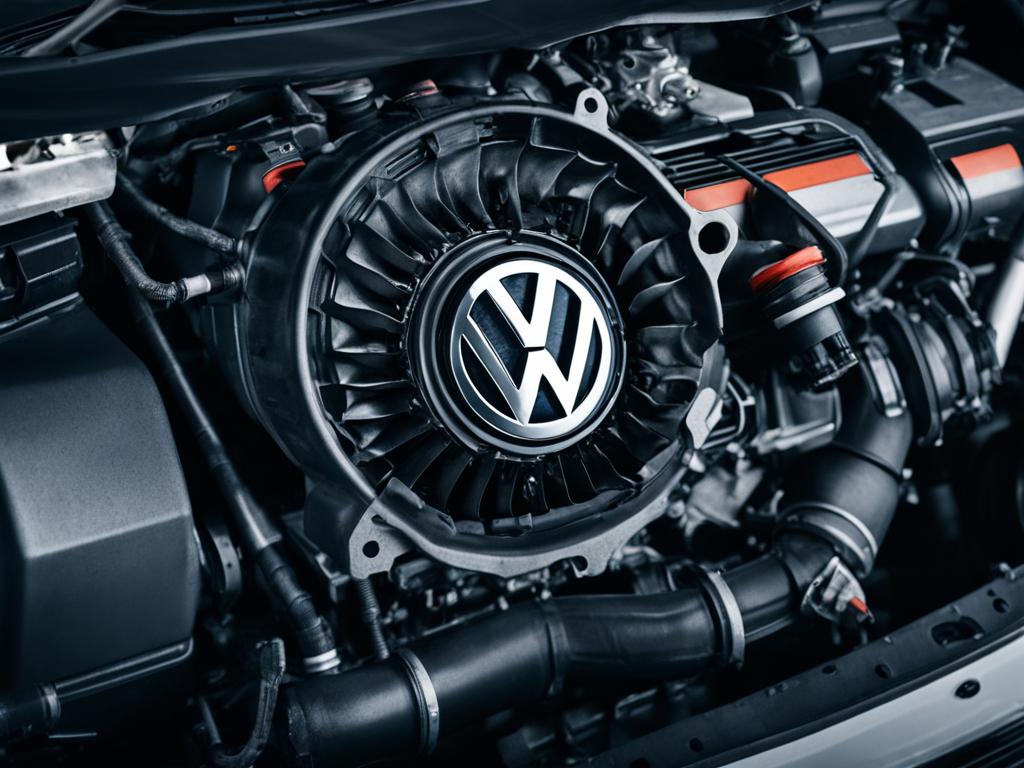Volkswagen Oil Change Cost Guide & Tips
If you own a Volkswagen, you may be wondering about the cost of an oil change and how to find affordable options. Regular oil changes are crucial for maintaining the health and performance of your Volkswagen’s engine. In this guide, we will provide you with valuable information on the cost of Volkswagen oil changes, how often you should change the oil, the benefits of regular oil changes, and where to get the best service at affordable prices.
Key Takeaways:
- Volkswagen oil changes can range from $60 to $100 depending on the model and type of oil used.
- Changing the oil every 10,000 miles or 12 months is recommended by Volkswagen.
- Regular oil changes ensure the longevity and performance of your Volkswagen’s engine.
- Volkswagen vehicles require synthetic oil, which offers better protection and longer intervals between oil changes.
- Authorized Volkswagen dealerships and reputable service centers are ideal places to get a Volkswagen oil change.
How Often Should I Change the Oil in My Volkswagen?
Volkswagen recommends changing the oil every 10,000 miles or 12 months, whichever comes first. Synthetic oil and improved engine-building technology allow for longer intervals between oil changes. However, factors such as driving style, distance, and operating conditions can impact the frequency of oil changes.
- Highway driving, sandy or dusty environments, and heavy loads may require more frequent oil changes.
- Monitoring systems in newer Volkswagen models provide alerts when it’s time to change the oil.
Regular oil changes are crucial for maintaining the health and performance of your Volkswagen engine. By following the manufacturer’s recommended oil change intervals and staying aware of external factors, you can ensure your vehicle continues to run smoothly.
Other factors that may influence oil change frequency:
- Driving style: Aggressive driving habits, such as frequent acceleration and high-speed driving, can cause more wear and tear on the engine, necessitating more frequent oil changes.
- Climate: Extreme temperatures, both hot and cold, can affect how the oil performs and may require more frequent changes.
- Operating conditions: Stop-and-go traffic, short trips, and constant idling can lead to faster oil degradation and the need for more frequent changes.
It’s always best to consult your owner’s manual for the specific oil change recommendations for your Volkswagen model. By adhering to the recommended intervals and considering these influencing factors, you can help maintain the longevity and performance of your Volkswagen engine.
Why is Changing the Oil in My Volkswagen Important?
Regular oil changes play a crucial role in maintaining the health and performance of your Volkswagen vehicle. Engines, especially those in Volkswagen cars, rely on clean and properly lubricated oil to function optimally. Here’s why changing the oil in your Volkswagen is of utmost importance:
1. Engine Longevity and Performance
The engine is the heart of your Volkswagen, and clean oil is its lifeblood. Over time, oil can become contaminated with dirt, debris, and contaminants, compromising its ability to lubricate engine components effectively. Regular oil changes ensure that the engine is consistently provided with clean oil, minimizing wear and tear and extending its lifespan. Additionally, fresh oil helps maximize engine performance, contributing to a smoother and more efficient driving experience.
2. Protection Against Damage
Volkswagen vehicles require synthetic oil, which provides superior protection against engine damage. Synthetic oils are formulated to withstand higher temperatures, resist oxidation, and offer better viscosity stability compared to conventional oils. These properties help safeguard critical engine components, such as pistons, crankshafts, and bearings, from excessive friction, heat, and wear. Additionally, specialized oil filters used in Volkswagen oil changes effectively trap harmful particles and contaminants, preventing them from circulating in the engine and causing damage.
3. Improved Fuel Efficiency
Regular oil changes can contribute to improved fuel efficiency in your Volkswagen. Clean oil helps reduce friction between moving parts, allowing the engine to operate more smoothly. This reduced friction translates into less energy wasted and more power transferred to the wheels, resulting in better fuel economy. By maintaining the recommended oil change intervals, you can optimize your Volkswagen’s fuel efficiency and save money at the pump.
4. Maintenance of Vehicle Value
Proper maintenance, including regular oil changes, helps preserve the value of your Volkswagen over time. Keeping up with scheduled oil changes not only ensures optimal engine performance but also demonstrates to potential buyers that the vehicle has been well cared for. When it comes time to sell or trade in your Volkswagen, having a documented history of regular oil changes can increase its resale value and attract more potential buyers.
Regular oil changes are an essential part of Volkswagen vehicle maintenance, offering both immediate and long-term benefits. By prioritizing oil changes, you can protect your Volkswagen’s engine, improve performance and fuel efficiency, and maintain its value for years to come.

Do I Need Synthetic Oil in My Volkswagen?
Volkswagen vehicles require synthetic oil, which is specifically designed to meet the unique needs of the engine. Unlike conventional oil, synthetic oil is formulated with advanced additives and has a more consistent molecular structure, offering several benefits for your Volkswagen.
- Better Performance: Synthetic oil provides improved lubrication, reducing friction and wear on engine components. This results in smoother operation, increased power, and better fuel efficiency.
- Enhanced Protection: Synthetic oil offers superior protection against engine deposits, sludge, and contaminants. It also has better resistance to breakdown at high temperatures, ensuring optimal engine performance and longevity.
- Extended Oil Change Intervals: Synthetic oil can last longer between oil changes compared to conventional oil. Volkswagen recommends changing the oil every 10,000 miles or 12 months, whichever comes first.
It’s important to consult the owner’s manual for your specific Volkswagen model to determine the recommended type and grade of synthetic oil. Using the right oil ensures proper engine function and helps maintain warranty coverage.
What’s Involved in an Oil Change?
An oil change for a Volkswagen involves several steps to ensure the proper maintenance and optimal performance of the vehicle. Here are the key procedures involved:
- Draining the Old Oil: The first step is to drain the old oil from the engine. This is typically done by removing the drain plug located on the bottom of the oil pan. It is important to ensure that the vehicle is safely elevated and that the engine is not hot to avoid any accidents or burns.
- Replacing the Oil Filter: Once the old oil has been drained, the next step is to replace the oil filter. The oil filter helps remove impurities and contaminants from the oil, ensuring that the engine receives clean oil for optimal performance. The specific size of the oil filter can be found in the Volkswagen owner’s manual.
- Adding Fresh Synthetic Oil: After the oil filter has been replaced, fresh synthetic oil is added to the engine. Synthetic oil is recommended for Volkswagen vehicles due to its superior performance and longevity. The exact type and grade of oil required for your specific Volkswagen model can also be found in the owner’s manual.
- Proper Disposal of Old Oil: It is crucial to properly dispose of the old oil. Used oil is considered hazardous waste and should never be disposed of in the regular trash or poured down the drain. Most reputable service centers will have a proper disposal system in place to ensure environmentally responsible oil disposal.
It is important to have the oil change performed by a certified Volkswagen dealership or a trusted service center that is knowledgeable and experienced with Volkswagen vehicles. This ensures that the correct procedures and recommended materials are used, maintaining the warranty and the optimal functioning of your Volkswagen.

| Steps for Volkswagen Oil Change |
|---|
| 1. Draining the old oil |
| 2. Replacing the oil filter |
| 3. Adding fresh synthetic oil |
| 4. Proper disposal of old oil |
Where to Get a Volkswagen Oil Change?
When it comes to getting an oil change for your Volkswagen, there are a few options to consider. Volkswagen suggests going to an authorized Volkswagen dealership for oil changes. These dealerships have the knowledge and expertise to service Volkswagen vehicles, ensuring that the oil change is done correctly and using the recommended synthetic oil.
However, if you’re looking for more affordable options, there are other high-quality service centers that can provide oil changes for Volkswagens at a lower cost. These service centers may not be authorized by Volkswagen, but they still have skilled technicians who are knowledgeable about Volkswagen vehicles.
When choosing a service center, it’s important to ensure that they use the recommended synthetic oil and follow proper procedures for your Volkswagen oil change. This will help ensure that your vehicle continues to perform at its best and that the warranty remains intact.
Authorized Volkswagen Dealerships
Authorized Volkswagen dealerships are recommended for oil changes because they have a deep understanding of Volkswagen vehicles and the specific requirements for oil changes. They are trained by Volkswagen and have access to genuine Volkswagen parts and oils. While dealership servicing may be more expensive than some independent service centers, you can have peace of mind knowing that your vehicle is in the hands of experts who specialize in Volkswagen maintenance.
Affordable Service Centers
If you’re looking to save on your Volkswagen oil change, there are other service centers that can provide affordable options. These service centers may offer competitive prices for oil changes while still maintaining the quality and integrity required for Volkswagen vehicles. It’s important to do some research and read reviews to ensure that the service center you choose has a good reputation and skilled technicians who understand the specific needs of a Volkswagen.
Tips to Reduce the Cost of an Oil Change
Lowering the cost of a Volkswagen oil change is achievable with these simple tips:
- Compare Prices: Before committing to a service center, compare prices from different locations to find the best deal in your area.
- Look for Specials and Coupons: Keep an eye out for oil change specials and coupons that can help you save on the overall cost. Many service centers offer discounts or promotions regularly.
- Bring Your Own Oil: If you’re familiar with the correct type of oil your Volkswagen requires, consider bringing your own. This ensures that the right oil is used and can potentially lower the cost charged by the service center.
- Choose a Reputable Service Center: Opt for a service center that specializes in Volkswagen vehicles. They will have the expertise and knowledge to perform the oil change correctly, ensuring your vehicle receives top-notch care.
By following these cost-saving tips for your Volkswagen oil change, you can keep your maintenance expenses in check without compromising on the quality of service.
Factors Affecting the Cost of Volkswagen Oil Changes
The cost of Volkswagen oil changes can be influenced by various factors, all of which contribute to the overall expense of the service.
1. Use of Synthetic Oil and Specialized Filters
One of the primary reasons for expensive Volkswagen oil changes is the requirement for synthetic oil and specialized filters. Synthetic oil offers superior performance and protection for Volkswagen engines, but it comes at a higher cost compared to conventional oil. Similarly, the use of specialized filters designed specifically for Volkswagen vehicles further adds to the overall expense.
2. High-Quality Materials
Volkswagen vehicles are known for their precision engineering and high-quality components. This commitment to excellence extends to the materials used in oil changes. The use of premium synthetic oils and top-of-the-line filters ensures optimal engine performance and protection, but it also contributes to the higher cost of the service.
3. Labour Expenses
Labour costs can significantly impact the cost of Volkswagen oil changes. Dealerships and authorized service centers often have higher labor rates compared to independent mechanics. The expertise and training required to service Volkswagen vehicles are reflected in these higher labor expenses. However, choosing a reputable service center with experienced technicians ensures that the oil change is performed correctly and efficiently.
4. Location
The geographical location of the service center can also play a role in the cost of Volkswagen oil changes. Service centers located in areas with a higher cost of living or higher overhead expenses may charge more for their services. Conversely, service centers in areas with lower costs of living may offer more affordable prices. It’s essential to consider the location when estimating the cost of an oil change.
Overall, the cost of Volkswagen oil changes is influenced by factors such as the use of synthetic oil, specialized filters, high-quality materials, labor expenses, and location. While these factors contribute to the higher cost, they also ensure that the oil change is performed to the manufacturer’s standards, promoting the longevity and performance of your Volkswagen vehicle.
When Should You Change Your Volkswagen’s Oil?
Volkswagen recommends changing the oil in your Volkswagen every 10,000 miles or 12 months. However, it is always best to consult the owner’s manual for the specific oil change intervals recommended for your Volkswagen model. Regularly checking the oil level and quality is important to ensure optimal engine performance and longevity. If you notice any signs of oil degradation or engine issues, it is crucial to prompt an immediate oil change.
The Cost of Volkswagen Oil Changes
When it comes to maintaining your Volkswagen vehicle, regular oil changes are a crucial part of its overall care. The cost of these oil changes can vary depending on several factors, including the model of your car, the type of oil used, and the location of the service center. On average, you can expect to pay approximately $99 to $134 for a Volkswagen oil change.
The price range for Volkswagen oil changes takes into account the use of synthetic oil, which is recommended for these vehicles. Synthetic oil offers superior performance and longer intervals between changes, but it does come at a higher cost compared to conventional oil used in mass-market cars.
The specific cost can also be influenced by the choice of specialized oil filters used in Volkswagen vehicles. These filters are designed to meet the unique needs of the engine, providing enhanced protection and efficiency. However, their use can contribute to the overall expense of the oil change.
To ensure the proper maintenance of your Volkswagen, it is important to budget for regular oil changes. These service intervals help keep your engine running smoothly and prolong its lifespan. Neglecting to change the oil on time can lead to engine damage and costly repairs down the line.
Consulting a certified Volkswagen dealership or a trusted service center familiar with Volkswagen vehicles is recommended to ensure that the oil change is performed correctly. They have the necessary knowledge and expertise to handle these specific vehicles and use the recommended synthetic oil and specialized filters.
By prioritizing regular oil changes and choosing the right service center, you can effectively maintain your Volkswagen’s performance and enjoy many worry-free miles on the road.

| Model | Type of Oil | Price Range |
|---|---|---|
| Golf | Synthetic | $99 – $115 |
| Passat | Synthetic | $105 – $125 |
| Jetta | Synthetic | $100 – $130 |
| Tiguan | Synthetic | $115 – $134 |
Conclusion
Regular oil changes are vital for maintaining the performance and longevity of your Volkswagen vehicle. Although the cost of Volkswagen oil changes may be higher compared to other cars, it is important to remember the long-term benefits of using synthetic oil and specialized filters. These components offer superior protection and can lead to improved engine health in the long run.
To minimize the cost of oil changes, it is recommended to compare prices and take advantage of any coupons or specials available. Selecting a reputable service center that specializes in Volkswagen vehicles can also help ensure quality service at an affordable price. By following the recommended oil change intervals and properly maintaining your Volkswagen, you can optimize the health and efficiency of your engine.
Remember, the investment in regular oil changes is a small price to pay compared to the potential cost of engine repairs that can result from neglecting this essential maintenance task. By taking proactive steps to care for your Volkswagen’s engine, you can enjoy a reliable and enjoyable driving experience for years to come.
FAQ
What is the cost of a Volkswagen oil change?
The cost of a Volkswagen oil change can range from $60 to $100, depending on the model of the car and the type of oil used.
How often should I change the oil in my Volkswagen?
Volkswagen recommends changing the oil every 10,000 miles or 12 months, whichever comes first.
Why is changing the oil in my Volkswagen important?
Changing the oil in your Volkswagen is important to ensure the engine’s longevity and performance. Engines rely on clean and properly lubricated oil to function optimally.
Do I need synthetic oil in my Volkswagen?
Yes, Volkswagen vehicles require synthetic oil, which is designed to meet the specific needs of the engine.
What’s involved in an oil change for a Volkswagen?
An oil change for a Volkswagen involves draining the old oil, replacing the oil filter, and adding fresh synthetic oil.
Where can I get a Volkswagen oil change?
You can get a Volkswagen oil change at an authorized Volkswagen dealership or a trusted service center familiar with Volkswagen vehicles.
How can I reduce the cost of a Volkswagen oil change?
To reduce the cost of a Volkswagen oil change, you can compare prices, look out for oil change specials and coupons, bring your own oil, and choose a reputable service center.
What factors affect the cost of Volkswagen oil changes?
Factors that can affect the cost of Volkswagen oil changes include the use of synthetic oil, specialized oil filters, and the location and labor expenses of the service center.
When should you change your Volkswagen’s oil?
Volkswagen recommends changing the oil every 10,000 miles or 12 months. However, it’s best to consult the owner’s manual for the specific intervals for your Volkswagen model.
What is the average cost of a Volkswagen oil change?
The average cost of a Volkswagen oil change is approximately $99 to $134, depending on the model of the car, the type of oil used, and the location of the service center.




